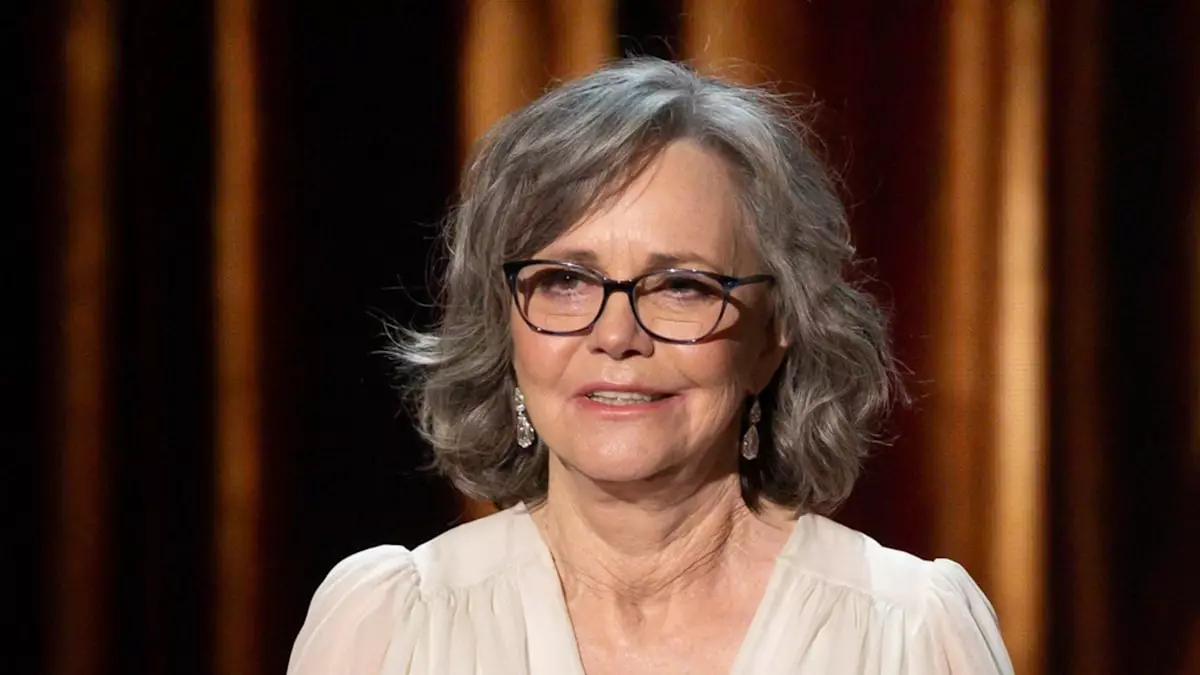In a poignant revelation shared on social media, two-time Oscar-winning actress Sally Field opened up about a harrowing chapter in her life—one that resonates with many women who have faced similar adversities. Field’s account of her experience with an illegal abortion at the age of 17 in 1964 underscores the dire circumstances that women faced before the landmark decision of Roe v. Wade. As she supports the upcoming presidential campaign of Kamala Harris and Tim Walz, Field’s story is not just a personal narrative; it serves as a critical commentary on the ongoing debates surrounding reproductive rights in contemporary society.
Field expressed feelings of deep shame regarding her past, emphasizing the oppressive circumstances that dictated her decisions as a teenager. The societal stigma surrounding unplanned pregnancies, particularly during the 1960s, left young women like Field with little to no reproductive choice or financial support. It’s imperative to contextualize her experience within a historical framework that reflects how far women’s rights and access to safe medical procedures have come—and yet how precariously they can be threatened.
Describing the ordeal in gripping detail, Field recounted how a family friend, a doctor, facilitated her journey to Tijuana, Mexico, for the procedure. The very act of traveling to secure an abortion illustrated the lengths to which women had to go, often risking their health and safety for the sake of autonomy over their own bodies. Field poignantly narrated the fear and anxiety that accompanied the process: “It was scary,” she stated, capturing the palpable terror that many women endure in similar situations, particularly when access to legal abortion is restricted or nonexistent.
The absence of anesthesia during the procedure is a haunting reminder of the inhumane realities of illegal abortions. Field demonstrated immense courage in recounting how, even amidst physical pain, she was subjected to further violation. This dual trauma of both physical and emotional distress underscores the ethical implications of denying women safe and legal access to reproductive healthcare. Field’s recollection resonates deeply in the context of modern-day discussions about reproductive rights; her experience is a grim testament to the dangers that arise when such rights are compromised.
The Reflection of a Generational Struggle
Field’s narrative does not exist in isolation; rather, it encapsulates the collective struggles faced by women of her generation. As she expressed, “So many women of my generation went through similar, traumatic events,” highlighting a shared legacy of resilience and suffering. This reflection not only honors those experiences but serves as a rallying cry for current and future generations to remain vigilant in the fight for reproductive freedom.
Furthermore, Field’s observation about her casting as the idealized “All-American girl” in *Gidget* juxtaposes the innocence of that role against her lived reality, reinforcing the notion that public personas can often obscure personal struggles. Her advocacy for Kamala Harris and Tim Walz is not merely political; it is a clarion call for collective action against regressive policies that threaten to erode decades of progress.
In her public message, Field passionately implored her audience to consider the implications of the upcoming election, stressing the importance of reproductive freedom. “PLEASE. WE CAN’T GO BACK!!” she exclaimed, emphasizing a sentiment that reverberates with urgency. Field’s story is a reminder that the fight for reproductive rights is not just about individual choice; it is about safeguarding fundamental human rights for all women in America.
Field’s willingness to share her experience invites dialogue and reflection, urging society to confront its responsibilities in protecting the rights of women. In a time when the landscape of reproductive rights is once again under threat, her voice emerges as a powerful reminder of why this struggle is not just personal but profoundly societal.
Through her candid sharing, Sally Field not only honors her past but ignites hope for a future where every woman can feel empowered to make decisions about her body without shame or fear. The importance of this fight cannot be overstated—it is a matter of dignity, freedom, and respect for generations to come.

